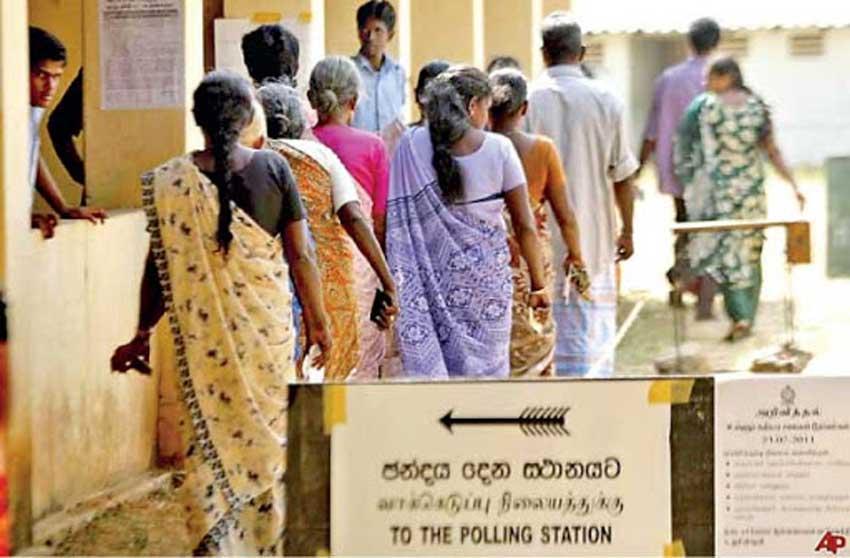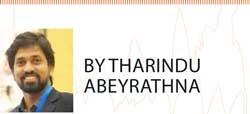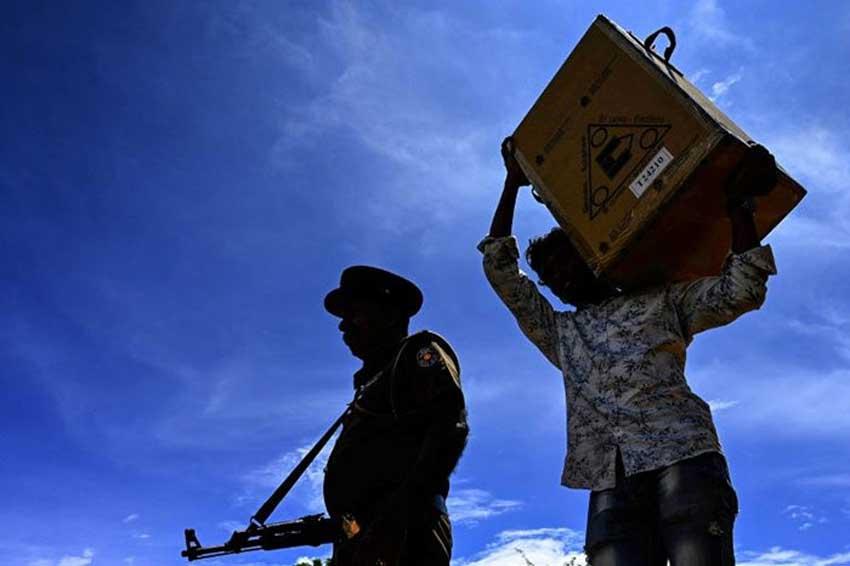Reply To:
Name - Reply Comment

 Despite the fact that electoral democracy in Sri Lanka faced many challenges in pre and post-independence eras, the country has managed to conduct periodical elections in national level.
Despite the fact that electoral democracy in Sri Lanka faced many challenges in pre and post-independence eras, the country has managed to conduct periodical elections in national level.
Sri Lanka known as the oldest democracy in Asia and it is among the very first in Asia that enjoyed universal suffrage. Donoughmore reforms took place in 1930 under the British rule paved the way to have voting rights for all the citizens above 21 years that they exercised in 1931at 1st State Council Elections.
Sri Lanka also managed to conduct elections in 1989 during insurgencies and also during the thirty years of civil war in North and Eastern parts of the country while the presidential election in 2005 was significant as Liberation Tigers of Tamil Eelam LTTE imposed a ban among the people in North and Eastern parts of the country away from the polling stations.
Last few decades Sri Lanka has managed to conduct free elections with comparatively less violence compared to 80s and 90s. The local and international election observation organizations observed the last presidential election in November 2019, praised Sri Lanka for conducting the most peaceful election in decades. The country’s oldest and most experienced election monitoring group, the People’s Action for Free and Fair Elections (PAFFREL) described the election as the most peaceful and free election held since 1982”. European Union (EU) election observation mission stated in their final report the election as:
“A largely violence-free electoral process was well managed by the electoral administration”.
While Asian Network for Free Elections (ANFREL) stated:
“The resounding success of the election was due to the acceptance of the election outcome by all contesting parties in a welcome demonstration of democratic maturity”.
President Gotabaya Rajapaksa dissolved the parliament six months before its term ended exercising his constitutionally permitted powers, with effect from 2nd of March 2020, by the extraordinary gazette No. 2165/8-2020. Fixed 25th of April, 2020 as the date for the parliamentary elections and 14th of May 2020 as the date to convene the new parliament. President has dissolved the parliament at the very first day he was able to exercise his power as 19th amendment to the 1978 constitution prevent him by dissolving the parliament before 4.5 years of its term ends.
The election came into the center of the attention when the election process has been interrupted by the global pandemic COVID-19. At least 68 elections across the globe have been affected by the pandemic situation and 50 elections have been postponed. Among them, some are national-level elections.
By 3rd of May, 2020, 705 confirmed patients reported with 7 deaths in Sri Lanka and the country was in an island wide curfew since 17th of March to 20th of April 2020. Government relaxes the curfew few times during the daytime from 21st except 3 districts that identified as hotspots.
At the end of receiving nomination period on 19th of March 2020, instead of publishing the “note of poll” gazette notification required by the section 24 (1) of parliamentary election act, Election Commission announced the postponement of the election through a press conference and issued an extraordinary gazette No. 2167/19 – 2020 on 21st of March 2020 stated poll cannot be held on the April 25, 2020 due to the Covid-19 outbreak in Sri Lanka. It also mentioned it would appoint a day that falls after fourteen days from April 30, 2020 as the day for the said poll. The Section 24 (3) of the Parliamentary Elections Act empowers the Elections Commission to postpone the election to another day in an occasion of emergency or unforeseen circumstances. This also indicated that the new parliament cannot be convene on 14th of May 2020.
Following the president’s rejection on EC’s suggestion that the Supreme Court be asked to find a solution, commission set 20th of June as the next election day following the Article 129 of the parliamentary election act. It also indicates the commission could postpone the election further if needed.

Public opinion and participation
Postponing an election is technically not a healthy sign of a democracy. Conducting an election in a situation like a pandemic also can raise questions on credibility of the election. Executing an electoral process that hinder the transparency and lack of public participation negatively effect on the legitimacy of elected officials. Conducting or postponing an election in a pandemic situation should be taken after carefully evaluating the advantages and the disadvantages of the both scenarios, also it has to be taken as a collective decision after consulting different stakeholders of the electoral process plus other authorities which involve in ensuring the public health, safety and security.
The first national level COVID-19 election has conducted successfully in South Korea on 15th of April, 2020 that can be a model for an election during a pandemic. Drastic measures implemented in the polling stations to ensure the voter’s safety and contain the possibility of virus spread. Voters were required to stand at least one meter apart, cover their faces with a mask, hand sanitizer and disposable gloves were provided at the entrance while voting booths disinfected frequently.
Temperature checks took place in each polling station and anyone higher than 37.5 Celsius (99.5 Fahrenheit) was directed to special booths. The whole process was able to attract the public trust in a scale that 66.2 percent of the voters turned up to vote. Highest number of the voter turnout after 28 years in South Korean election history.
Voter turnout is one of the major characteristics of a successful election that indicates the public trust towards the electoral system. Sri Lanka has been maintaining a relatively high voter turnout in its national elections. It was 82.72 percent in last presidential election in 2019 November and also 77.66 percent voter turnout in the parliament election in 2015. In a backdrop that the society reflect a divided opinion on conducting the election in current COVID-19 pandemic, the public participation can be low if authorities will not be able to win the trust among the public on ensuring voter’s safety at the polling stations and safety of the polling staff and during preparations, polling and counting.
Ensuring the participation of different segment of the society, disproportionate health impacts on people with disabilities, people who are suffering for other health issues such as heart disease, diabetes, breathing issues and older citizens that may hinder them from voting in person. The electoral system in Sri Lanka does not provide special provisions for those segments to cast their ballot form home or early voting opportunity, for them to participate in the process.
The section 26 of the parliamentary election act provide provisions for the early voting facility by post only for those who are serving in security forces, some of the government workers who are in essential work, government staff engage in election duties on the election day and the candidates who contest in a different constituencies from their registered constituency . This will prevent providing early or postal voting facility for the thousands of voters who are in quarantine centers in different parts of the country out from their constituencies and also the self-quarantined population.
One of the key success of the South Korean election was, more than 11 million people, about 26 percent of the registered voters, cast their ballots in advance or by mail. This has contributed to secure the voting rights of the many people and also avoided larger crowds at the polling stations on the election day.
On 7th of April 2020, Singapore also passed a bill in the parliament to provide special provisions to conduct election during COVID-19, if country will have to conduct the next parliamentary elections under the current circumstances. This bill includes the provisions to voters who are under COVID-19 stay orders to vote outside of their electoral divisions.
The safety of the polling staff also equally important as voters. Conducting a national level election is one of the biggest logistical operation in any country. It involves election preparation including printing, transporting ballot papers, setting up the polling stations, polling day operations, vote counting and other post-election operations.
All these steps should design in a way to ensure the safety of the poll workers and necessary personal protective equipment should be provided for them. 2019 presidential election conduced in 12,845 polling stations on the election day and at least 250,000 election officials and 70,000 police involved in the operation during the pre-election period, the polling day polling and counting.
Election Commission has estimated in beginning of the March the election will cost around 7 to 7.5 billion of Sri Lankan rupees depends on the number of nominations. Conducting the election in epidemic circumstances with extra safety precautions will definitely cost more than the earlier estimate.
Campaigning and media landscape
In a democratic setting, elections are the time that wide range of public issues are being discussed and this political discussion is an important part of a healthy democracy. This pandemic setting can disrupt the healthy policy discussion and focus the political campaign around the COVID-19 and its response. The scholars and the political observers have observed this pattern in pre-election period in Queensland local elections on 28th of March 2020 and also in South Korea.
Political party rallies, pocket meetings, door-to-door campaigns are an important part of the Sri Lankan political culture during the pre-election campaign where candidates convey their direct messages to the voters. More importantly in a parliamentary election that citizens elect their representatives to the legislature, it is crucial the candidates interact with the voters for their campaign. The social distance measures during the pandemic can severely effect on the traditional methods of election campaigning and the restrictions on movement in situations such lockdowns also prevent election campaign dynamics.
In recent years, increasing the use of social media in many countries has moved the election campaigns also online. Online campaigns could become even more important during a pandemic due to the required social distance practices to contain the virus. Sri Lanka has 7.13 million internet users which amount to 34 percent of the population. It is growing by 6.2 percent annually. There are 6.20 million active social media users in the country, which is 30 percent of the population and it is growing at 3.3 percent annually. Presidential election in 2019 one of the elections in Sri Lankan history that social media and internet interaction had reached to its all-time peak.
International and local election observers have raised the concern over high degree of hate speech and disinformation in the social media and the traditional media during the elections campaign. EU has raised their concern on a highly polarized and disinformation dominated online space, with limited number of available accounts to receive verified factual information. The report further states:
“Consequently, and overall, a damaging online environment distorted public debate and curbed voters’ access to factual information on political alternatives, an important element for voters in making fully informed choices”.
Traditional media outlets such as newspapers, TV and radio also can play in important role in an election time. These are the trusted outlets that people rely on for their day to day information needs for decades and more popular among the non-urban populations. Unlike social media, TV remains the most popular media in rural and semi urban settings while newspapers are mode conveying the political messages to the older urban population.
Ownership of the media outlets raise questions on conveying independent information to the public and creating a healthy political discussion during an election time. A research conducted by Colombo based think tank, Verité Research and Reporters Without Borders revels 75 percent of print media, 55 percent of radio and online also, 50 percent of television owners have direct or indirect political affiliations.
There is no law in Sri Lanka prohibiting members of parliament or their family from owning media organizations. The government media also historically well known for being partial towards the governing political party. Despite the fact that EC was able to control state media in several occasions in past elections, largely both state and private media organizations been partial towards their political affectations during the election period. The election law does not provide any provisions to the EC to take actions against private media in such contexts.
Government relief efforts and misuse of public funds
The COVID-19 relief efforts by the government pose a serious threat to the election process with a possibility of misusing the government funds for the benefit of certain candidates for their election campaigns and current circumstances has a possibility of amplifying the long tradition of vote buying in Sri Lankan elections.
Misusing the government funds and vote buying is a typical way of campaigning in Sri Lanka throughout the history which highly criticized by the civil society and election observers. Actions against such acts were not seriously materialized in the past even though thousands of complains reported by the observer groups to the election management bodies.
The lawsuit against the former President Secretary Lalith Weerathunga for distributing white clothes as gifts from President Rajapaksa to Buddhist devotees on Duruthu Poya (Jan 4, 2015) just four days before the election using the funds from Telecommunication and Regulatory Commission (TRC) of Sri Lanka was significant as it was one of the rare cases of materializing the action against misuse of government funds for election campaigns.
On 20th of April 2020, EC issued a gazette notification to prevent officers of all Government Ministries, Departments, Statutory Boards, Provincial Councils and Local Authorities from engaging with any candidate contesting the Parliamentary Election in facilitating or directing the distribution of government relief to citizens. Implementation of this directives yet to be observed.
Ensuring legitimacy while conducting a transparent election
The level of transparency and the integrity of the entire electoral process legitimate the incumbent government and its elected officials. Party agent and independent election observers monitoring the election contribute to the legitimacy and trust of the process and it is also a long tradition in the Sri Lanka that party agents and the observers are allowed to monitor the polling and the counting process that welcomed by the election law and procedures. In the given COVID-19 context, NEC will have to consider a new strategy in accommodating them while practicing social distancing guidelines in the pooling stations and counting centers.
The typical school classrooms largely used as the polling stations and counting centers may not have enough space and the EC must conduct a polling station survey before assigning them. Center for Monitoring Election Violence (CMEV) dragged the attention towards the counting centers that at least 18 people involve in the counting process for maximum 8 hours, that would be a great challenge to maintain the
safety guidelines.
Conclusion
The COVID-19 context and inability to conduct the election almost dragged the county towards a constitutional crisis where relevant authorities need to be more politically sensitive in order to resolve issues via inclusive dialogue between the relevant stakeholders. The decision of postponing or conducting election also has to take through a proper consultation, after rigorously examining the advantages and disadvantages while calculating the social cost as postponing election can undermine the democratic principles while conducting a heavy logistical operation in a pandemic can pose a serious health threat to the public and undermine the credibility of
the election.
Overlapping the Sri Lankan election calendar and the COVID-19 pandemic situation has highlighted some unresolved issues in the Sri Lankan electoral and political systems. Over last few decades, the political, social and the stakeholder factors has been changed drastically while 39 years old election law provides very little flexibility to conduct elections in such unforeseen situations.
Proposals such as need of a more inclusive advance voting system, ability to election commission to take actions against both private and state media during the election, proper regulatory mechanism over disinformation and hate speech in social media, need of a campaign finance law and use of technology in electoral system have been proposed by the civil society and election observers that has not been materialized by the country’s legislation.
The oldest democracy in Asia that survived through many challenges in its electoral democracy has come to another crossroad where the right decision-making political sensitiveness determine the way forward.
(Tharindu Abeyrtahna is a local and international election observer who observed elections across Asia including Sri Lanka. He is also a technical expert and a trainer in elections contributed for publications covering different aspects of the elections such role of media, civil society and also election observation in the electoral process)